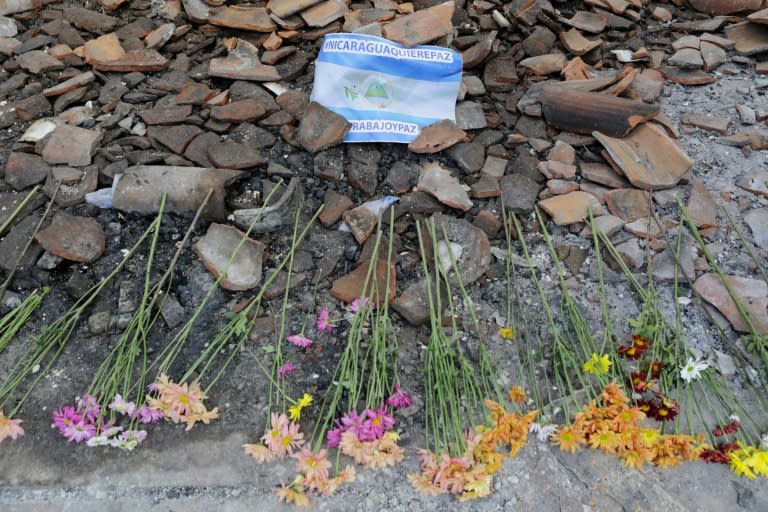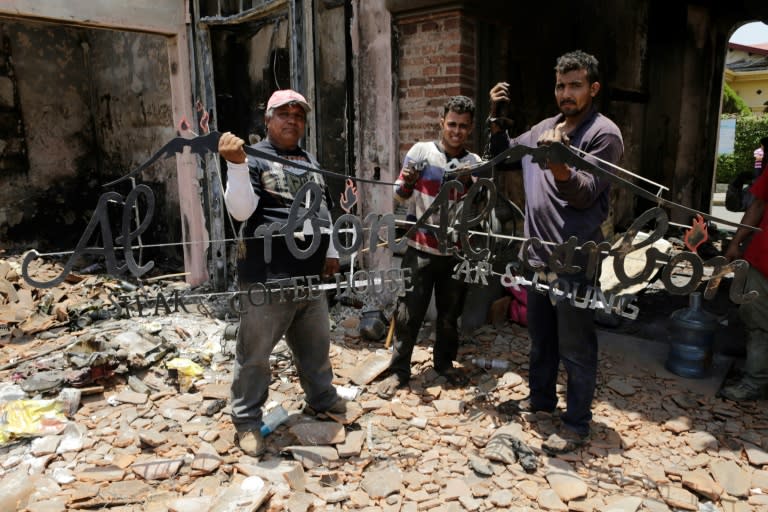Sandinista bastion calls for Nicaragua leader to end repression
Leon, a northern city that is a bastion of support for Nicaragua's ruling Sandinista party, wants President Daniel Ortega to put an end to repression and authoritarianism. It's a message many in the Central American nation want to get across after a week of violent protests that have been met by a robust police response at the cost of at least 27 lives. "I think Leon is tired. We might be Sandinistas but we're not Danielistas," said Eliza Rodriguez, a worker in a shelter where protesters hurt in clashes in Leon were brought for medical attention. "The people are tired of being repressed, of being intimidated," she said. "I think all of Nicaragua, not only Leon wants them to go," she said, referring to Ortega and his wife and vice president Rosario Murillo. If he could hear them, the comments would be a slap in the face to the president, a 72-year-old former Sandinista guerrilla who has ruled over his country for 22 of the past 39 years. Protesters in the capital Managua have been calling for his ouster. But for that desire to be echoed in Leon demonstrates the rift that has opened between him and communities that were once his base. - Resentment - When the protests started a week ago, initially over pension reforms, retirees in Leon also held their own march. They were quickly assailed by groups linked to Ortega's FSLN party. That sowed seeds of resentment and opposition that fueled other long-simmering grievances. "We need total change. More freedom. More official support for the people, and no more authorities hurting the people," said Carlos Gutierrez, a 26-year-old builder who watched a university center be torched during the unrest. The fire spread to an adjacent restaurant, reducing it to cinders and leaving its 30 staff without work. "We want change. And if it's possible, we want them to go," said Maria del Socorro Perez, 32. She said that, in Nicaragua, "there is no freedom of expression, and all the government bodies are stacked." Not all, however, backed a radical change of leadership. Maria Gutierrez, a 64-year-old receiving a monthly pension of $30 and caring for two grandchildren after her daughter's death to cancer, said: "I'm sad to see what's happening. But I don't want a change of government." Ortega had made things better for the poor, she said. - Radio station torched - Leon, located 70 kilometers (50 miles) northwest of the capital, has backed for the leftwing Sandinistas since a 1979 revolution swept out the ruling Somoza dynasty. Its narrow streets and high adobe walls, retaining the architecture inherited from Spanish colonial times, were the backdrop of big battles for independence, and in the rebellion that brought Ortega to power. On Tuesday, after nearly a week of protests and clashes, the city was slowly reverting to normal life, with shops reopening their doors. But in the Posada del Sol de Leon district, neighbors recalled last Friday night when a group of youths turned up to set fire to an opposition radio station. "The idea to do away with the radio is characteristic of what is happening to freedom of expression," said Lester Hernandez, a journalist who managed to escape the flames by jumping out a window along with 13 other people who had been in the station at the time. "It's horrible what the country is going through. I think it's time for change," he said, standing in front of the blackened shell where the radio station had stood. "Ortega is like Somoza. They are the same," said a former Sandinista rebel, Sergio Medrano, 59. He stressed that he had fought the old Somoza regime "for a better life, to live in freedom." For shoe-shiner Francisco Palacios, 17, however, the only hope was to see calm restored. "I call on Comandante Ortega and Mrs. Rosario Murillo to sit down for dialogue," he said.




